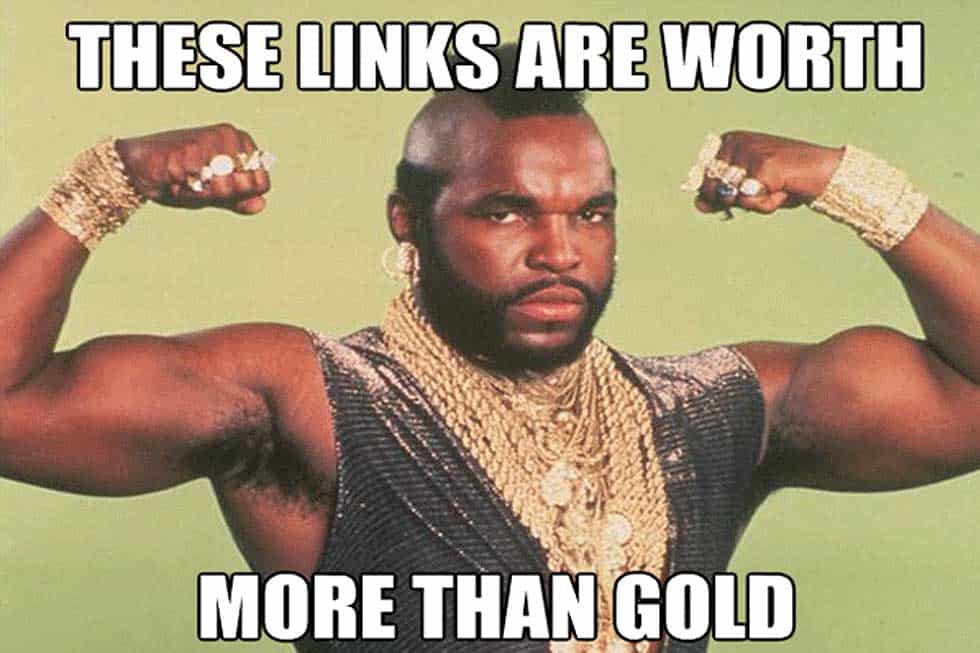
Whew, we can finally exhale. Matt Cutts (Google’s head of web spam), has declared that links still matter, but with some caveats. In a recent interview with Eric Enge, Cutts said, “I firmly support the idea that people should have a diversified way of reaching their audience.
So if you rely only on Google, that might not be as strong of an approach compared to having a wide variety of different avenues by which you can reach people and drive them to your website or whatever your objective is.”
These days, people utilize a plethora of resources when making purchasing decisions. A customer may find your product via Google search, then jump over to YouTube to search for video reviews. Alternatively, they may hear about you on a social channel such as Facebook or Twitter, and end up on your website.
This is why Cutts is suggesting that we move away from 100% reliance on Google. Google is trying harder and harder to be “human”, meaning its looking for the same signals you and I seek out when determining whether or not we trust a business or brand.
So, what are the key signals?
They are signs that tell Google real people have virtually vetted a product, service, website or even person. Google is moving further away from reliance on links to determine whether or not a site should be highly ranked. Instead, it’s looking for evidence that real people are interacting with web content. This means we should explore avenues outside of search engines when considering the most effective ways to promote businesses online.
In a nutshell, a diverse and well-rounded approach is the only way to stay on top of ever-changing algorithms.
HOW TO MAKE GOOGLE HAPPY
1. Make a Great Website
A great website is one with a combination of sound design and technical execution. A good UI can lead to increased time on site and conversion rates, while proper coding ensures correct implementation of URL structure, title tags and meta descriptions. It all works together to facilitate a pleasant user experience. When users are happy, search engines are typically happy as well.
2. Produce High Quality Content
Content marketing is now a vital component of SEO. Producing content that generates a buzz will lead to likes, shares, comments and natural links. All of these boost authority in the eyes of search engines. It will also garner trust with your customer base, which leads to loyalty and long-term retention.
3. Build a Strong Social Media Presence
Social signals are now a strong component of Google’s algorithm, so a strong social media plan is necessary for success. Facebook “likes”, twitter shares, Google +1s, and article comments all let search engines know that a piece of content is gaining popularity.
4. Become an Authority in Your Industry
In online marketing, you must give to receive. If you share knowledge with peers and customers, they will acknowledge and reward your expertise. For example, start an industry specific blog with valuable information that helps others in your area of business. They wiill undoubtedly share your content and come back for more.
5. Obey Panda and Penguin
From 1997 to the mid-to-late 2000’s, link building was all that mattered in the world of SEO. Volume was the name of the game, and webmasters continually created clever ways to game Google’s search algorithm to get as many links as possible to their domains.
Then, something happened. Google began tweaking their algorithm to combat tactics it deemed unethical (aka: black hat). From 2003 to 2010, Google made significant changes to devalue links coming from places like link farms, spammy anchor text and blog comments. Then, in 2011 the infamous Panda update was rolled out, to be followed by Penguin in 2012.
Penguin (2012)
-The Google Penguin update penalized low quality links, bad anchor text and keyword stuffing.
Panda (2011)
-The Google Panda update focused on penalizing content farms, duplicate content, poorly written and/or spammy content and sites with high bounce rates.
To ensure you keep things white hat, and appeasing the Google Gods, don’t do any of the following:
-Purchase and publishPLR content on a blog
-Use scraper programs to steal content that you post to your website
-Use a single article for syndication to other websites in exchange for backlinks
-Purchase links
-Pay for spammy blog content or forum posts
-Hire a 3rd party link building service that gets links via link exchanges with spammy websites
6. Use Anchor Text Wisely
Using the right anchor text when you’re doing an internal linking or link building strategy will have a great effects on your rankings and organic traffic. Linkio gives you the perfect anchor text percentage and usage to get over your competitors very quickly and gain quality organic traffic to your website.
In Conclusion
Matt Cutts and Google have a dream. That dream is a search engine that thinks and behaves like a human. It is not influenced by spammy ploys or gimmicks, and can spot a trusted business by analyzing the way real people talk about it and interact with it.
The job of a search engine marketer gets more difficult with each algorithm update. However, in the end these changes are better for all of us. Here’s to websites and search engines working in harmony.
Let`s Get
In Touch
Contact us today for a free consultation
and cost estimate for
your project.
We work with companies in all
industries, big or small.
Give Us a Call: 786-529-6039
Services
©2024 FUZE DIGITAL INC. Ignite Your Brand™ | privacy





